Recording Ennui: The Day I Stopped 4-Tracking (PART 2)
This is Part 2 of my 4-Track Posts. This is an online exclusive (not emailed). I'm still adding to this post, but you can read what I have so far
This is Part 2.
You will find Part 1, “My Journey from Skater to 4-Track Wizard”, here.
You will find Part 3, “3 Methods of 4-Tracking”, here.
You will find Part 4, “Technical Notes on a Tiny Medium”, here.
*you’ll see some ‘notes to self’, reminding me to put more stuff in this post.
In late 1996, I stopped
One day, in the attic of 1520 Grove Street, Boulder, Colorado (December of 1996) my 4-track died. When I was a renter, it was a shit-box, next to the porn shop and liquor mart. It was cold in the winter and hot in the summer. I lived and slept in the upstairs attic and had too many room-mates. I had a drumset up there and I slept next to it on the floor, my face beneath the high hat (some modern pictures are below).
One day, I went to zero out a cassette and the buttons on my MT-120 just did nothing. I called around but no one could fix it–or the cost to fix it was too expensive (I cannot remember). At that point, I realized a couple things: I was getting way more into film production (my degree) and skateboarding (my life) to have time for music making in my day. The MT-120 dying was the final straw. I self-determined my music career was going nowhere and shifted my creativity elsewhere.
NOTE TO SELF - RYNO, PLACE A RECORDING HERE (maybe a before and after remixing/remastered versions?)
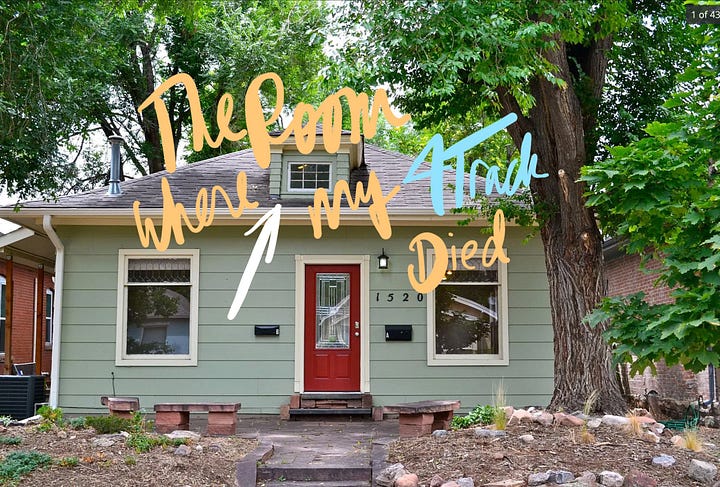
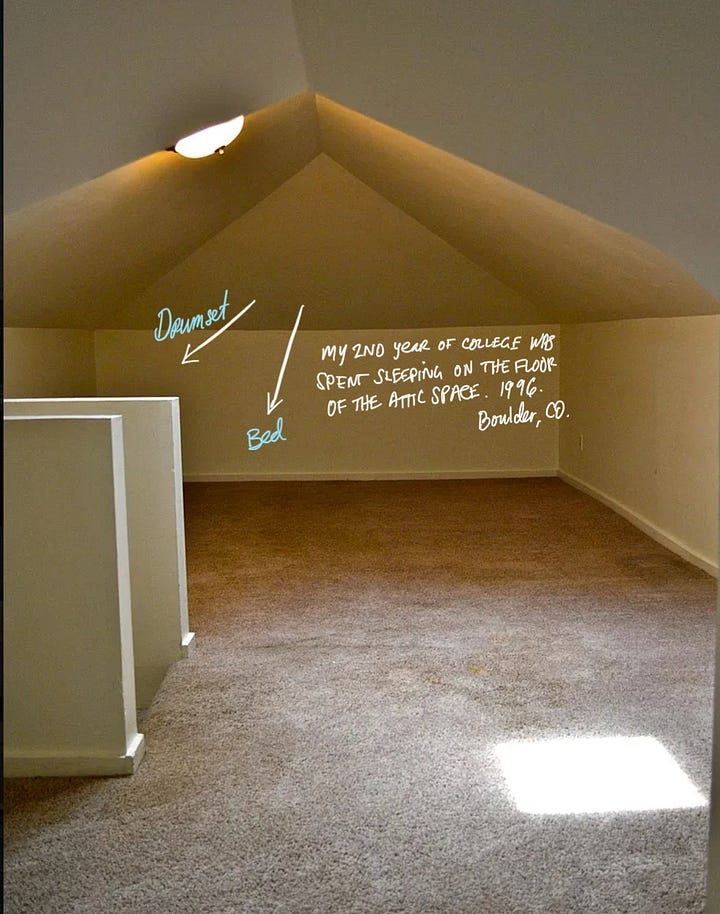
Flash forward 10 years to 2012
I began making music again in 2008 while living in Long Island City, NY. After my long term relationship busted up, I found myself alone in Gotham.
I had reached for songwriting again, probably for the same reasons I had in Phoenix. I didn’t need a 4-track cassette recorder at this point. In fact, I had already made plenty of music in Pro Tools and was an accomplished film editor using Avid. I was fully acclimated to digital. Pro Tools was still called ‘Digidesign’ company at this time. Avid was not publicly traded.
I wanted to 4-Track on cassette again, for the limitations.
I was having a hard time making choices in my songwriting arrangements and needed some brutal restrictions to help me make better, quicker demos.
I bought a used MT-120 on Ebay and the device worked for 6 months before suffering the same fate as my 1996 machine. No joke. The buttons became unresponsive and the cost to repair it outweighed the sticker price.
I filled up 6 tapes with a number of demos in my rehearsal space that ended up being very useful. I used the same logbook. I recorded at the faster tape speed (higher quality), so the tapes didn’t have the density of songwriting on them. I mixed out to a portable digital recorder.
The return to tracking with a single mic was just as joyous as I thought it would be, although totally unnecessary. It turned out my troubles in songwriting were not solved by a restriction in options. What I needed to do was make lots of songs to get better.
I learned to do better with some self-imposed limitations in my demo making.
The Restorative Digitizing - 2022
In January of 2022, shortly before my move to Korea, I purchased 2 x Yamaha MT4x recorders (upgraded versions of my original MT-120s) on Reverb.com and captured these 23 x cassette tapes onto my computer–while dismantling my rehearsal space in LIC in preparation for my big move. I didn’t listen while I captured. I had 2 machines capturing at once (8 channels) into my Universal Audio Apollo 8p at 96k 24bit.
I’ve decided, for now, to focus on new music. Remixing and mastering all of this old stuff scares me a bit. I’ve made some changes in my life and curtailing nostalgia is one of them. I discovered in myself a propensity for seeking new and exciting ways to become stagnant. Going over the ‘good ole days’, for me, seems like the act of a retiree.
There is call to rummage through these cassettes. My song “Please”, for instance, started out in 1993 and I found the original version, here. We are putting that out as the first Pretty City Lights EP. I may do more with it once my nostalgia grows strong enough. For now, I’ve protected my original work.
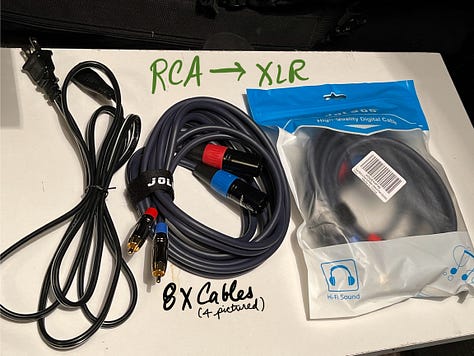
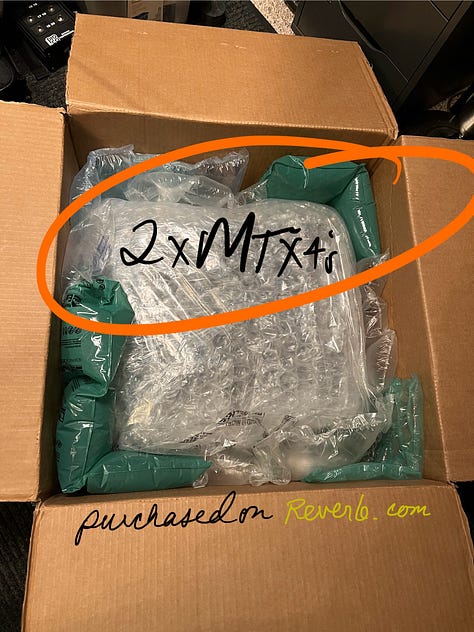
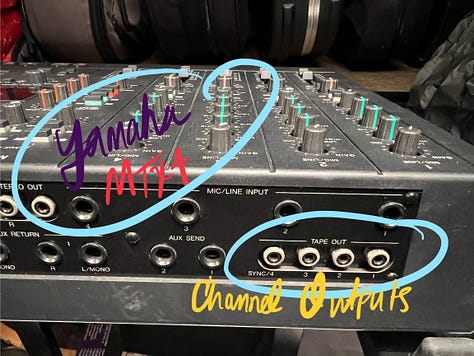
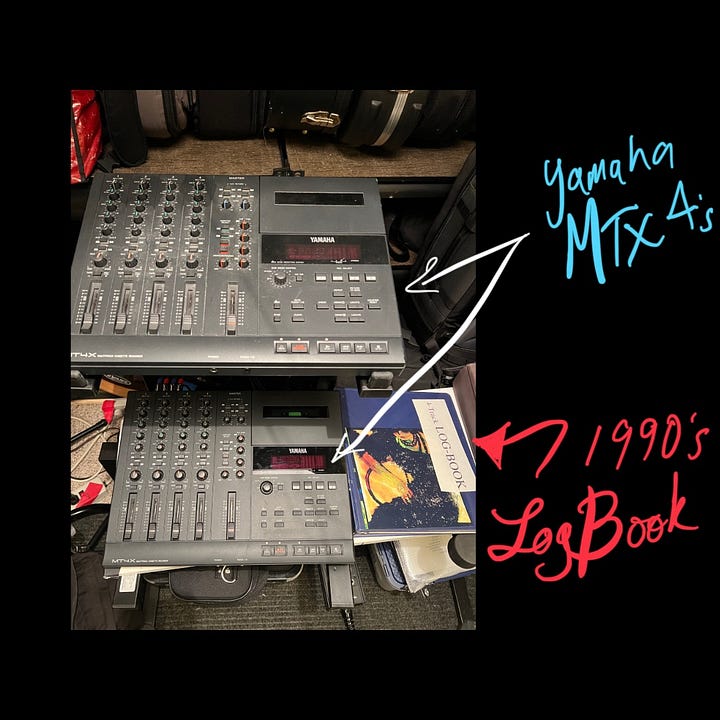
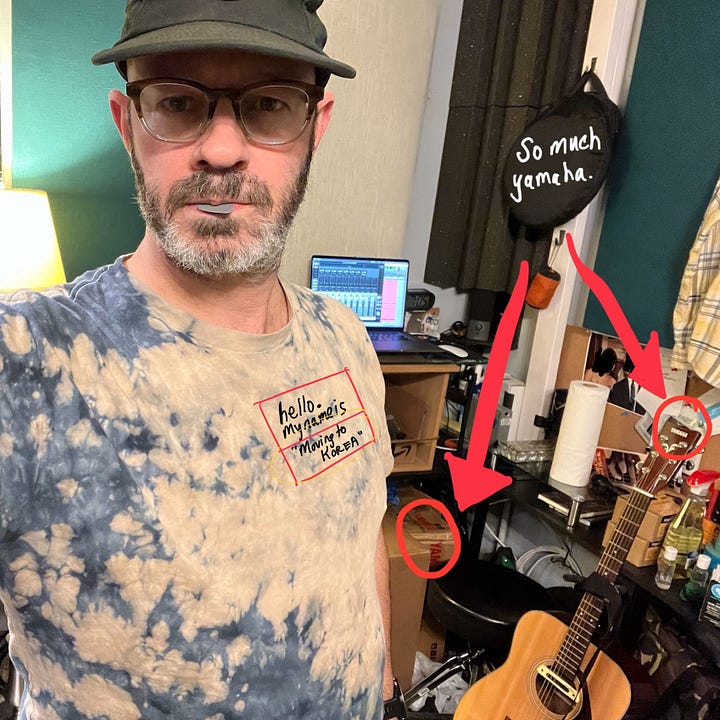
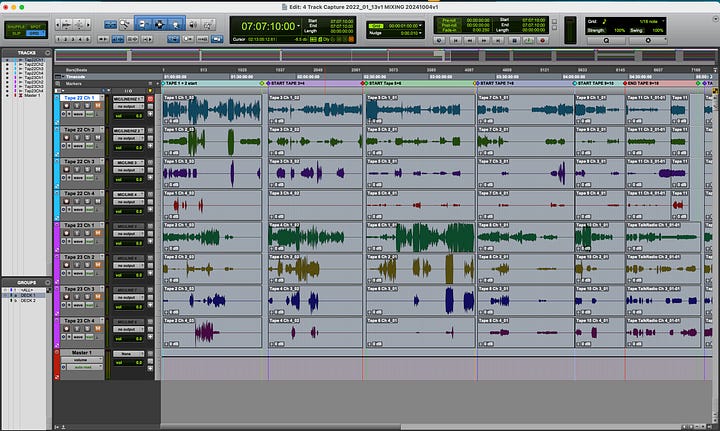
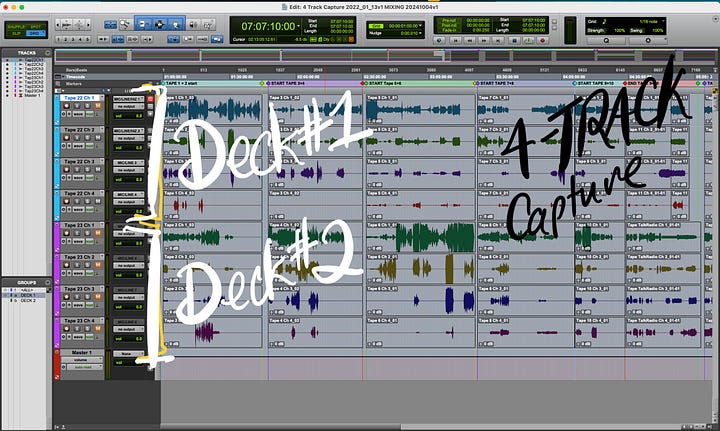
Please enjoy Part 3, “3 Methods of 4-Tracking”, here.
About the author
Ryan OToole (aka, RYNO) is a skateboarder from Arizona with too many film degrees, who writes songs for Pretty City Lights—a new music project based in Seoul, South Korea. His songs have been described as, "alternative rock for people dying of middle age". Formerly associated with the band, Amateur Blonde, his songs have been featured in television and film - notably, The Walking Dead (S10 Ep21). RYNO is the author of Behind The Lights a freemium substack publication, documenting the Pretty City Lights song & album creation process with the slogan, “watch me make music”.



